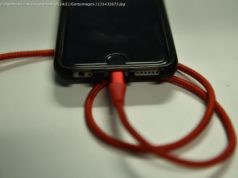The Silicon Valley partnership represents an extension of — but also a departure from — the consumer strategy that Goldman has been pursuing since the launch of its digital consumer bank, Marcus.
It’s not often that Goldman Sachs gets second billing. But amid all the glitz that accompanied the unveiling of Apple’s new credit card on Monday, the Wall Street bank’s role was somewhat overshadowed.
Goldman will be the issuer of the Apple Card, which is expected to launch this summer, marking the bank’s first foray into the credit card business.
In an indication of the deal’s importance to Goldman, CEO David Solomon was in attendance Monday at the Steve Jobs Theatre in Cupertino, Calif. “This partnership is a major step in the growth of our consumer franchise,” Solomon said in an email to the bank’s employees.
Goldman has been offering personal loans, which customers often use to refinance credit card debt, since 2016. The firm also offers deposit accounts through Marcus, its digital consumer bank. And last year the New York bank acquired Clarity Money, the maker of an app that helps consumers maintain control of their finances.
The Apple deal represents an extension of — but also a departure from — the consumer strategy that Goldman has been pursuing for the past few years.
As a newcomer to consumer financial services, Goldman Sachs does not rely on legacy technology like other large consumer banks do, and company officials believe that Marcus’ modern architecture represents a key advantage. Apple Vice President Jennifer Bailey indicated Monday that the tech giant chose Goldman for that reason, saying that the venerable bank was in a position to take bold and innovative steps forward.
In one example of the Apple Card’s forward-leaning technology, consumers will be able to apply for the card from their iPhones, get approved in minutes, and make purchases immediately.






